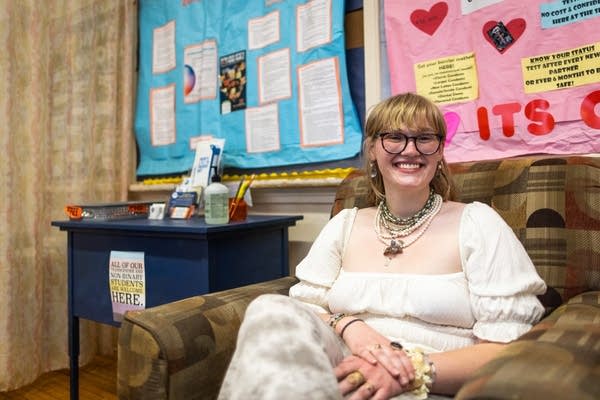Therapy at school? In these Minneapolis high schools, students get care on their own terms

Senior Elise Legler, 17, sits in her favorite chair inside of the school-based clinic at Minneapolis' Roosevelt High School. “It’s like a one-stop shop for everything."
Ben Hovland | MPR News
Go Deeper.
Create an account or log in to save stories.
Like this?
Thanks for liking this story! We have added it to a list of your favorite stories.


